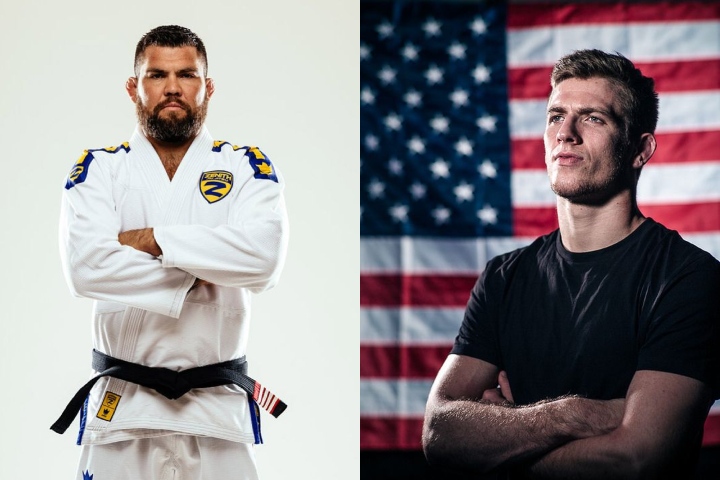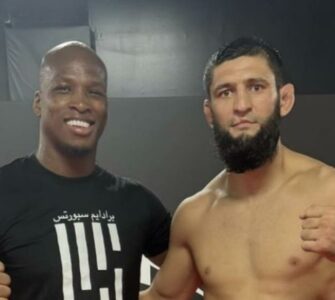In a thought-provoking Mastery Jiu-Jitsu podcast, ADCC champion Robert Drysdale, (who is half Brazilian, half American) a well-known figure in the world of Brazilian Jiu-Jitsu and author of two books on its history, discusses the concept of American Jiu-Jitsu and its legitimacy. This discussion is sparked by Keenan Cornelius’ exploration of old newspaper articles from the 1910s about Len Lanius, who claimed to be the creator of American Jiu-Jitsu.
The Myth of American Jiu-Jitsu Lineage
Drysdale addresses the idea of an American Jiu-Jitsu lineage, which he finds to be non-existent. He notes, “The connection [Keenan’s] trying to create, the genealogy he’s trying to create is non-existent… It’s wrong on so many different fronts.”
“It’s a marketing plot for white belts really… What’s new about Jiu-Jitsu in the US, let’s look at it like technical terms, alright, oh there’s some developments with foot locks.”
Regarding the Use of ‘American’ in Jiu-Jitsu:
“It’s an easy way to gain followers without actually having to be a patriot or a great businessman… It’s a very cheap way of gaining followers.”
Drysdale points out that the term Jiu-Jitsu in the early 20th century was an eclectic term, encompassing various martial arts forms from Japan. The techniques of Len Lanius, who Cornelius referred to as the father of American Jiu-Jitsu, were more aligned with Aikido than what we recognize as Brazilian Jiu-Jitsu today. Drysdale emphasizes, “It’s not Brazilian jiu-jitsu; it’s not what we call Jiu-Jitsu.”
The Commercialization and Cultural Shift
Drysdale argues that what can be termed as American Jiu-Jitsu is actually the Americanization of Brazilian Jiu-Jitsu by Brazilians themselves, focusing on its commercialization and transformation into a business. He explains, “No one looked at Jiu-Jitsu as a business in Brazil… When [Brazilians] came to the US, they saw big bucks and repackaged the whole thing.” This shift led to a significant change in the culture of Jiu-Jitsu, transitioning from a strict, hierarchical system to a more customer-focused approach.
Marketing Strategies and Misconceptions
Drysdale criticizes the use of the term ‘American Jiu-Jitsu’ as a marketing strategy, aimed at appealing to an audience unaware of the history and evolution of Jiu-Jitsu. He states, “It’s a marketing plot for white belts really… There’s nothing new about these things but people under the impression that this is something new.”
Understanding the True Nature of Jiu-Jitsu
Drysdale’s analysis sheds light on the complexities and evolution of Jiu-Jitsu. While technical advancements and methodological changes occur globally, the essence of Jiu-Jitsu transcends geographical boundaries. The notion of American Jiu-Jitsu, as portrayed in recent discussions, is more about branding and marketing rather than a distinct martial arts lineage or a fundamentally different form of Jiu-Jitsu.


















